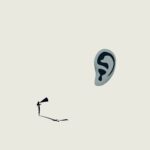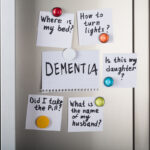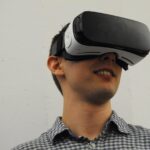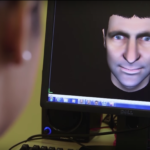
Lorna Collins reflects on a systematic review exploring the benefits of Hearing Voices and other self-help groups for people with auditory hallucinations.
[read the full story...]
Lorna Collins reflects on a systematic review exploring the benefits of Hearing Voices and other self-help groups for people with auditory hallucinations.
[read the full story...]
Charlotte Huggett and Sophie Paul explore an important review looking at the content and modality of hallucinations in prelingually deaf people with schizophrenia.
[read the full story...]
Clarissa Giebel reviews a recent study exploring the impact of auditory hallucinations on ‘living well’ with dementia using findings from the IDEAL programme.
[read the full story...]
Stefanie Sturm blogs a systematic review which finds sparse, but promising support for the use of virtual reality to treat schizophrenia spectrum disorder.
[read the full story...]
Edel McGlanaghy critiques a systematic review which finds that meditation may lead to adverse events, particularly psychiatric adverse events.
[read the full story...]
Georgie Buswell summarises a cross-sectional study, which used open questions to try and understand people’s lived experiences of taking antipsychotic drugs.
[read the full story...]
Hearing voices is common in young people. In this #CAMHScampfire blog, Douglas Badenoch looks at a new qualitative study of the experiences of people aged 13-18 who hear voices but who do not have any clinical diagnosis.
[read the full story...]
In her debut blog, Jessica Armitage reviews a recent cohort study, which suggests that it may be possible to predict risk of psychopathology in victimised children.
[read the full story...]
Laurie Hare-Duke writes his debut elf blog on a recent meta-analysis on loneliness and the psychosis continuum, which finds that loneliness is associated with both positive and negative psychotic symptoms, and is more strongly associated with paranoia than with hallucinations.
[read the full story...]
Joe Barnby summarises a recent RCT in The Lancet Psychiatry of AVATAR therapy for auditory verbal hallucinations in people with psychosis.
[read the full story...]